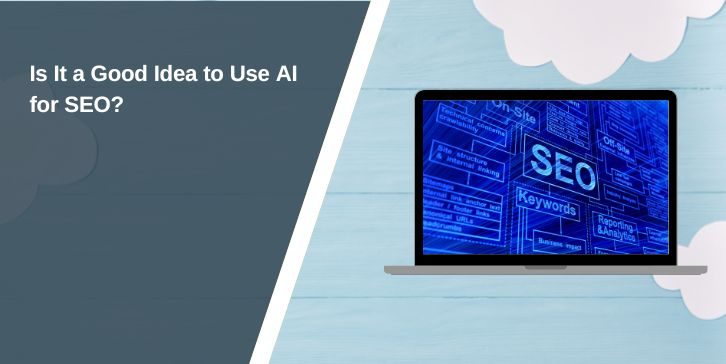Artificial intelligence (AI) is transforming industries, and search engine optimization (SEO) is no exception. With AI tools becoming more sophisticated and accessible, businesses and marketers are increasingly turning to AI to streamline SEO processes. But is it a good idea to use AI for SEO? This article explores how AI impacts SEO, its benefits, challenges, and how to strike the right balance between AI and human expertise.
How AI is Transforming SEO
AI has introduced new possibilities in SEO, enabling marketers to automate tasks, analyze large datasets, and predict trends with unprecedented accuracy. Unlike traditional SEO methods that rely on manual effort and intuition, AI leverages machine learning, natural language processing (NLP), and predictive analytics to make data-driven decisions.
For example, AI tools can analyze search intent, group related keywords, and even generate optimized content tailored to specific audiences. A tool like Ahrefs can uncover keyword clusters, while Surfer SEO suggests improvements to align with search engine algorithms. This level of precision and efficiency makes AI a valuable addition to SEO strategies.
Advantages of Using AI in SEO
AI offers several advantages that can revolutionize your SEO efforts, including:
- Efficiency and Automation: AI eliminates repetitive tasks, such as keyword research, link building, and technical audits, freeing up time for strategic planning.
- Data-Driven Insights: AI tools analyze vast amounts of data to identify patterns, trends, and opportunities that humans might overlook.
- Improved Content Optimization: AI suggests relevant keywords, headings, and meta descriptions, ensuring content aligns with search engine preferences.
- User Intent Analysis: AI understands user intent more effectively, helping to create content that matches what users are searching for.
- Scalability: AI enables businesses to scale their SEO efforts quickly without proportionally increasing resources.
By integrating AI into your SEO workflow, you can achieve faster results and a more refined strategy.
Challenges and Limitations of AI in SEO
While AI has its strengths, it’s not without challenges. Here are some limitations to consider:
1. Over-Reliance on Automation
AI tools are designed to enhance efficiency, but over-automation can lead to generic content and missed opportunities for creativity. For example, AI-generated blog posts might lack the nuance or originality that resonates with audiences.
2. Ethical Concerns
AI-generated content can blur the lines of originality, raising concerns about plagiarism and authenticity. Search engines like Google prioritize unique, high-quality content, and overusing AI may risk penalization.
3. Interpreting AI Data
AI tools often provide complex data, and understanding how to apply these insights effectively requires expertise. Misinterpreting AI recommendations can result in poorly executed strategies.
4. Cost of AI Tools
Advanced AI SEO tools can be expensive, making them less accessible for small businesses or individual marketers.
Despite these challenges, a balanced approach that combines AI efficiency with human oversight can mitigate risks and maximize benefits.
Use Cases and Applications of AI in SEO
AI is versatile and can be applied across various aspects of SEO, such as:
- Keyword Research: AI tools like SEMrush and Ahrefs cluster related keywords, identify long-tail opportunities, and analyze search intent, making keyword research faster and more effective. For example, using an AI SEO Content Writer can significantly streamline the content creation process by generating optimized articles faster and improving keyword targeting.
- Content Optimization: AI-powered tools such as Jasper and Surfer SEO suggest keywords, headings, and structure to improve on-page SEO. They also generate content outlines and meta descriptions.
- Technical SEO: AI helps identify and fix issues like broken links, slow loading times, and mobile responsiveness. Tools like Screaming Frog SEO Spider are excellent for technical audits.
- Performance Tracking: AI monitors rankings, traffic, and engagement metrics, providing actionable insights for improving your strategy.
- Predictive Analytics: Machine learning algorithms predict ranking changes and suggest future actions, helping you stay ahead of competitors.
Balancing AI and Human Expertise
AI is a powerful tool, but it works best when combined with human creativity and strategic thinking. Here’s how to strike the right balance:
- Use AI for Data Analysis: Let AI handle data-heavy tasks like keyword clustering and performance tracking, freeing up your team to focus on creative aspects.
- Humanize AI-Generated Content: Review and refine AI-generated content to ensure it aligns with your brand voice and audience expectations.
- Combine AI Insights with Manual Strategy: Use AI suggestions as a guide but tailor your approach based on your unique audience and industry.
- Regularly Evaluate AI Tools: Test different tools to find the ones that align best with your goals and offer the most value.
This collaboration between AI and humans ensures your SEO campaigns are both efficient and impactful.
Future of AI in SEO
As AI technology evolves, its role in SEO will likely expand. Advancements in natural language processing (NLP) and machine learning will improve AI’s ability to understand user intent and context. Predictive analytics will become more accurate, allowing marketers to anticipate trends and adjust strategies proactively. However, human oversight will remain essential to ensure AI outputs align with ethical and strategic goals.
Conclusion
Using AI for SEO is a good idea when applied thoughtfully. It enhances efficiency, provides data-driven insights, and scales SEO efforts effectively. However, it’s important to balance AI’s capabilities with human expertise to ensure authenticity, creativity, and strategic alignment. By combining the strengths of AI and human oversight, you can create a powerful SEO strategy that drives results.
Have you tried using AI for SEO? Share your experiences and favorite tools in the comments below!

